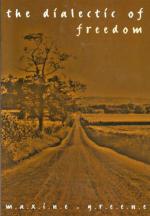|
This section contains 14,817 words (approx. 50 pages at 300 words per page) |

|
SOURCE: "Dewey's Social and Political Commentary," in Guide to the Works of John Dewey, edited by Jo Ann Boydston, Southern Illinois University Press, 1970, pp. 218-56.
In the following essay, Brickman—a professor of Educational History and Comparative Education—defends his conclusion that Dewey's commentaries on politics and society form a cohesive and consistent whole.
A milestone in Dewey's intellectual development was his lecture, "The Ethics of Democracy," delivered in 1888 to the Philosophical Union of the University of Michigan. To Merle Curti, this paper was evidence that Dewey possessed "a thoroughly democratic and even radical social point of view as early as 1888."1 The philosopher argued that democracy was a broad concept which necessarily embraced not merely politics, but also the economy and industry. He combined "a criticism of quantitative individualistic theory of political democracy with a definitely moral interpretation in terms of 'liberty, equality, fraternity.'"2 His insistence that...
|
This section contains 14,817 words (approx. 50 pages at 300 words per page) |

|


